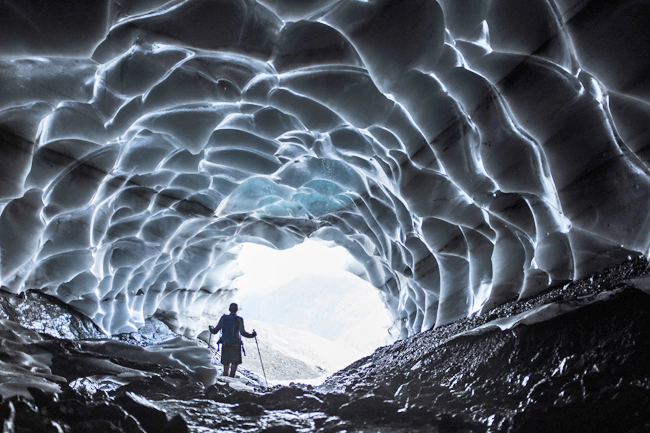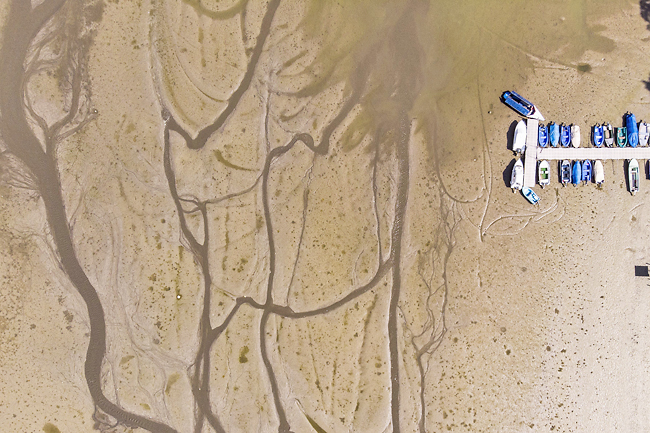Jamey Keaten
BRIG, SWITZERLAND (AP) – A battle is brewing around Europe’s rooftop over the planet’s most precious resource.
Bountiful for centuries, the crystal-clear waters issuing from the Alps could become increasingly contested as climate change and glacier melt affect the lives of tens of millions in the coming years: Italy wants them for crop irrigation in the spring and summer. Swiss authorities want to hold up flows to ensure their hydroelectric plants can rev up when needed.
For the first time in four years, after a pandemic lull, government envoys from eight Alpine countries – big, tiny – are meeting in Brig, southern Switzerland, under a grouping known as the Alpine Convention, set up 30 years ago to help coordinate life, leisure and the limited resources from Europe’s most celebrated peaks.
The countries, ranging from pint-sized principality Monaco and small Slovenia to powerhouses like France, Germany and Italy, have focussed much attention on what’s known as the “Simplon Alliance”. Named after an Alpine pass between Italy and Switzerland, it aims to make transportation more eco-friendly, including by favouring rail over roads, and public transport over private cars in the mountains.
But with global warming causing a worrying shrinkage in Alpine glaciers this year, especially in Switzerland, the issue of water frozen up in the mountains, or showered and snowed on them, is growing in importance.


Environmental advocates said jockeying for water isn’t being addressed with enough urgency – and want the Alpine countries to do more to talk about the future of the resource.
This isn’t new: Turkey and Iraq, Israelis and Palestinians, are among many countries and peoples to feel the strains of water woes. But well-irrigated and relatively rich Europe has been largely above such troubles, reaping bountiful water resources for agriculture, hydropower, ski resorts and human consumption.
The 9th report on the State of the Alps – drafted by the Swiss hosts and set to be approved yesterday – notes that water supply is a “particularly pressing issue” because the Alps are a huge reservoir of water, which ultimately flows to the benefit of some 170 million people along some of Europe’s most famous rivers, including the Danube, Po, Rhine and Rhone.
“Drinking water supply, industrial production, agricultural productivity, hydropower and other uses all require consistent availability of Alpine water,” said a near-final draft of the report, obtained by The Associated Press. “Climate change puts these functions under pressure, as glaciers are receding and precipitation regimes are constantly changing.
“Thus, reduced quantities of water and limited reliability of water supply will be a major issue in the coming decades,” it added.
Director of CIPRA International and commission devoted to protecting the Alps based in tiny Liechtenstein, Kaspar Schuler said governments have worryingly stopped short of steps to tackle the issue like they should – by setting up working groups, expanding research, or coming up with ways that water can be better shared in the future.
“We – the observer organisations – are happy that they have it on the agenda, but we are astonished that it is so blurry,” Schuler said in an interview. “They are aware of the fact that this will be a big issue in the future. But they behave like it’s not so important yet.
“The description of the difficulties is well done by the Swiss, but they have still no courage to address the elephant in the room,” he added.
While Alpine resorts and villages rely on water, the major upstream users are Switzerland’s hydropower plants, which want to hold onto the water until it’s most needed to power turbines that provide some 60 per cent of the country’s electricity.
But the biggest consumers of the water are downstream – industrial areas like Grenoble and Annecy in France, Austria’s capital Vienna, and areas around Bolzano in Italy’s South Tyrol are likely to feel an impact.
The southern Alpine towns, especially in France and Italy with their drier climates, are more likely to undergo water shortages than the northern towns, the report said. “This is particularly true of inner-Alpine dry valleys such as the Aosta Valley in northwestern Italy, already affected by significant water stress.”
Representing Germany’s Environment Ministry in Brig, State Secretary Bettina Hoffmann said her country was working to “bundle” issues of sustainable water in the broader context of the fight against the climate crisis – the centrepiece of the United Nations climate conference in Sharm el-Sheikh, Egypt, starting November 6.
“The Alpine countries have to act on two levels: Only resolute climate action that stops global warming can preserve the remaining glaciers,” she said. “At the same time, however, we have to adapt to changes in the water balance both in the Alps and in rivers fed by water from the Alps.”
She called for “in-depth exchanges on how to protect the water cycle in the Alps”, and suggested countries in the region should share best practices and ideas. “We need to involve all stakeholders, from tourism to agriculture right through to the water supply sector.”
CIPRA’s Schuler suggested that many have become too complacent about the Alps’ bountiful waters – and those days may be over soon.


